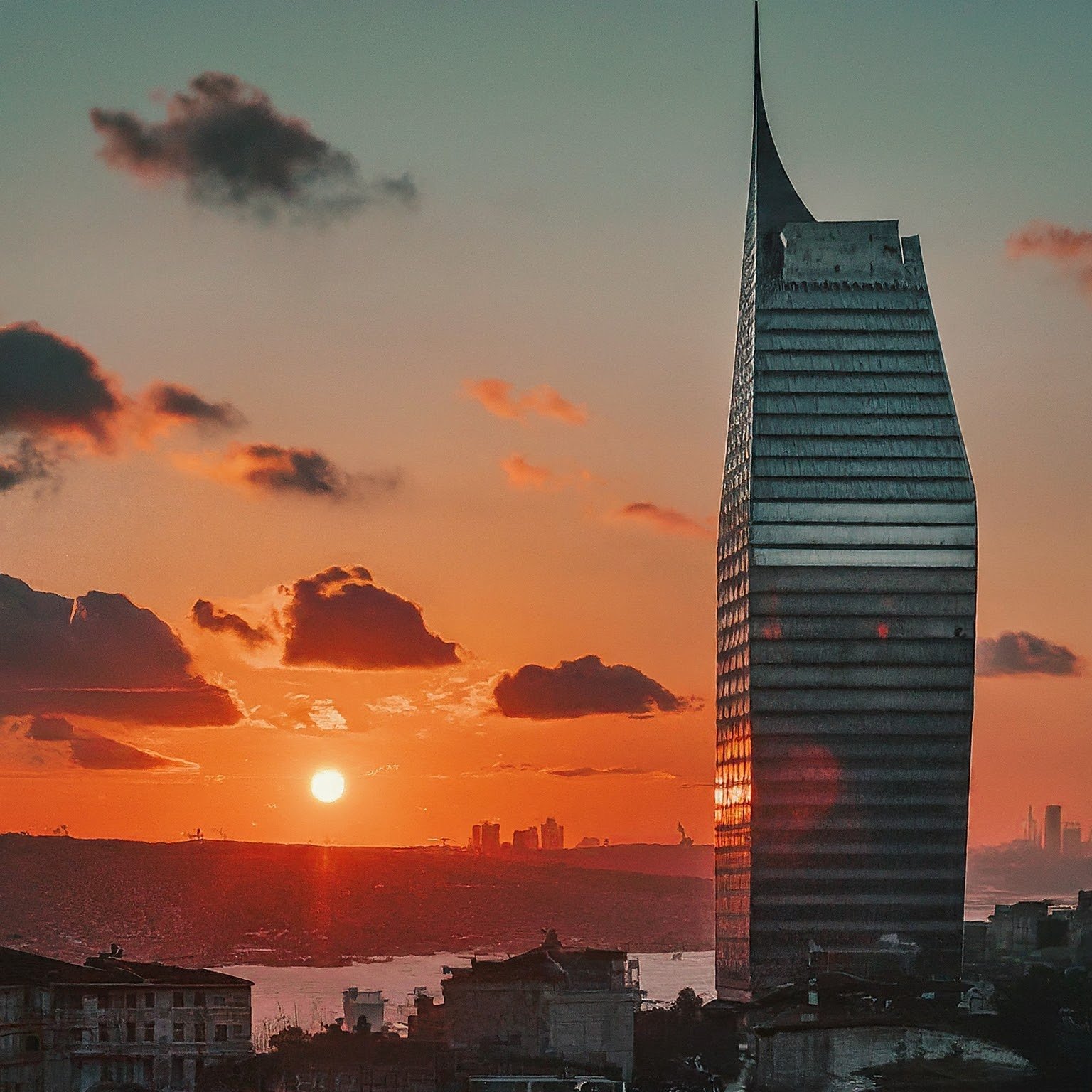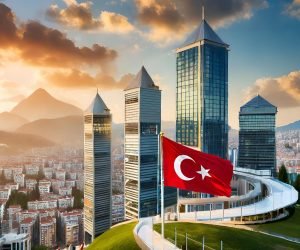
-
by Usman Bari
- 5 August 2024
- Real-estate
- (0)
- 05 Mins
Turkey has experienced a dynamic real estate journey in recent years. A perfect storm of economic growth, government incentives, and a burgeoning tourism industry propelled property prices to new heights. This surge attracted both domestic and international investors, eager to capitalize on the booming market.

However, as with all economic cycles, the relentless upward trajectory couldn’t last indefinitely. Factors such as rising inflation, currency fluctuations, and global economic uncertainties have started to cast a shadow over the market. While the market hasn’t experienced a full-blown recession, the once-feverish pace of growth has undeniably cooled.
Turkey’s real estate market has experienced a rollercoaster ride in recent years.
Key Trends:
- Rapid Price Increases: Property prices have soared dramatically, especially in the last few years. While this has attracted foreign investors seeking opportunities, it has also made the market less accessible for domestic buyers.
- Cooling Market: After a period of intense growth, there are signs of a cooling market. Sales figures have declined compared to the peak years, and there’s a growing concern about a potential price correction.
- Economic Challenges: Turkey’s economy has faced significant challenges, including high inflation and currency depreciation. These factors have impacted consumer confidence and purchasing power, affecting the real estate market.
- Government Policies: Government policies, such as interest rate adjustments and incentives for homeownership, have played a crucial role in shaping the market.
- Foreign Investment: The Turkish government has actively encouraged foreign investment in real estate, offering incentives like citizenship programs. This has contributed to a significant influx of foreign buyers.
Understanding the Global Real Estate Cycle
Before delving into the specifics of Turkey’s market, it’s essential to grasp the broader context of global real estate cycles.

Typically, a real estate cycle consists of four main phases:
- Expansion: Characterized by rising prices, increased construction activity, and high demand.
- Peak: Prices reach their highest point, and the market starts to show signs of cooling.
- Recession: Prices decline, and there’s a decrease in sales and construction activity.
- Recovery: The market begins to stabilize, and prices gradually start to increase again and the gradual return of investor confidence.
Turkey’s Real Estate Market: A Complex Tapestry
Turkey’s real estate market has mirrored global trends to a certain extent. The country experienced a significant boom period, driven by factors such as economic growth, government incentives, and a surge in foreign investment. This expansion phase was characterized by rapid price appreciation, increased construction activity, and a buoyant investor sentiment.
However, like many other markets, Turkey is showing signs of cooling. While not experiencing a full-blown recession, the market has undoubtedly shifted from the frenzied pace of previous years. Factors such as rising inflation, currency fluctuations, and tightening credit conditions have contributed to this slowdown.
Key Indicators:
- Price Increases: Property prices have experienced significant growth in recent years, which is a characteristic of the expansion phase.
- Cooling Market: There are signs of a slowdown in sales and price growth, indicating a potential transition towards a recession.
- Economic Challenges: Turkey’s economic situation, including inflation and currency fluctuations, can impact the market’s trajectory.
- Investor Sentiment: Confidence among both domestic and foreign investors is crucial for market momentum.
Predicting the Future: Challenges and Opportunities
Forecasting the exact trajectory of Turkey’s real estate market is challenging due to the interplay of domestic and global factors. However, several trends can be observed:

- Market Stabilization:After the rapid price increases, it’s likely that the market will undergo a stabilization period. Prices may continue to rise, but at a more moderate pace.
- Increased Investor Focus on Rental Yields:As capital appreciation slows down, investors may shift their focus towards properties with higher rental yields.
- Growing Importance of Location:The importance of location will become even more critical. Properties in prime locations with good infrastructure and amenities will likely continue to appreciate.
- Rise of Luxury Segment:The luxury segment of the market is expected to remain strong, driven by both domestic and foreign buyers.
- Impact of Economic Factors:The overall health of the Turkish economy will significantly influence the real estate market. Factors like inflation, interest rates, and currency exchange rates will play crucial roles.
- Foreign Investment to Continue:Turkey’s Citizenship by Investment program and its attractive lifestyle continue to draw foreign buyers. This trend is expected to persist.
Potential Challenges
- High Inflation: Persistent high inflation can erode purchasing power and dampen demand.
- Interest Rate Fluctuations: Changes in interest rates can impact mortgage affordability and overall market sentiment.
- Geopolitical Risks: Political instability or global crises can create uncertainty in the market.
Predicting Recovery Time for Turkey’s Real Estate Market
Pinpointing an exact timeframe for the recovery of Turkey’s real estate market is challenging due to numerous interconnected factors. However, based on historical data, economic indicators, and expert opinions, we can make some educated estimates.

Factors Affecting Recovery Time
- Economic Stability: A return to stable economic conditions, with controlled inflation and a strengthening currency, is crucial for market recovery.
- Interest Rates: Lower interest rates can stimulate demand for housing loans, accelerating market recovery.
- Government Policies: Supportive government policies, such as tax incentives or relaxed regulations, can positively impact the market.
- Global Economic Conditions: Global economic trends, including interest rates and investor sentiment, can influence the Turkish real estate market.
Potential Recovery Timeline
Considering these factors, a gradual recovery of Turkey’s real estate market could potentially take anywhere from 2 to 5 years.
- Short-term (1-2 years): Stabilization of prices and a potential decline in transaction volumes are likely.
- Medium-term (2-3 years): Market sentiment may improve, leading to increased buyer confidence and gradual price appreciation.
- Long-term (3-5 years): A more robust recovery is possible, with increased investment activity and a return to pre-crisis levels.
It’s important to emphasize that this is a general estimate. The actual recovery time could be shorter or longer depending on the evolution of economic conditions and government policies.
Key Considerations for Investors
Given the current market dynamics, investors should adopt a strategic approach:
- Long-Term Perspective: Real estate is inherently a long-term investment. Focus on building a portfolio that can weather market fluctuations.
- Diversification: Spread investments across different property types and locations to manage risk.
- Thorough Due Diligence: Conduct comprehensive research and seek professional advice to make informed decisions.
- Focus on Fundamentals: Prioritize properties with strong fundamentals, such as location, rental demand, and quality construction.
While the Turkish real estate market may be experiencing a period of adjustment, its underlying strengths and long-term potential remain intact. By understanding the market cycles and adopting a prudent investment strategy, investors can navigate the challenges and capitalize on opportunities.
Evnew Properties is here to guide you through this dynamic market. Contact us today to explore investment options tailored to your goals.
Disclaimer: This blog provides general information. It’s essential to conduct your own research or consult with our advisor.
